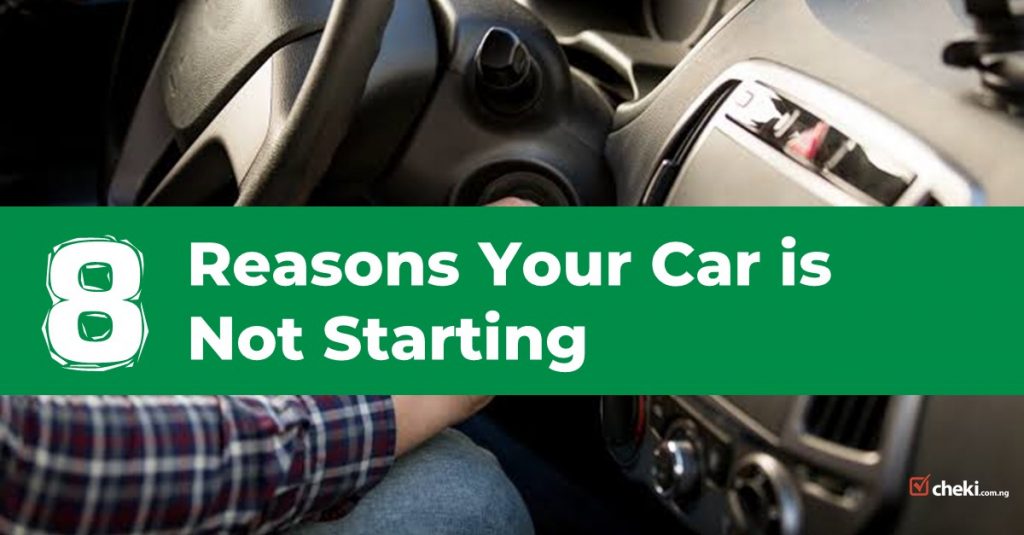There are so many connected parts in your car that could prevent it from starting regardless of whether it is a new car or a used car. It is when you start considering the roles these parts play individually for your car to start every single time you drive it that you become amazed.
Basically, two broad steps can be used to sort out a car that has failed to start. The first is to identify if the engine is cranking. This means when you try to start the car, does the engine make that familiar sound it makes when it’s about to start: “gug gug guggug…”
The second scenario is when the engine is not cranking. Below is a list of eight possible reasons why your car is probably not starting:
1. Dead Battery
Most times, a dead battery could be the cause for your car’s inability to start. The battery could die if a wire is loose; if the dome light was on overnight; or if the water component inside has evaporated causing poor conductivity. If all these possible causes are not responsible for the no-start, check the age of the battery. It could be that the battery is old and due for replacement.
To confirm if the battery is the cause of the problem, try jump-starting the car. If the car responds, it is most likely a dying battery that is the problem.
2. Alternator
A faulty alternator may prevent your battery from charging. Therefore, if you suspect that the alternator could be the cause of the car not starting, a worn or slipping accessory drive belt might be the culprit. Check for it. In cases where the alternator fails or the belt breaks, there will likely be a warning light to alert you to it. Also, a poor charging system output will give you a warning light.
3. Bad Ignition Switch
In the event that your battery is in perfect working condition, but the car still refuses to start after numerous tries, it would be great to check the ignition switch. One possible way of going around this is by turning on your headlights. Since the battery feeds the headlights and dashboard energy, if the lights come on, without the engine starting, you can confidently suspect a bad ignition switch as the cause of the ‘no-start.’
4. Wheel Lock
Anti-theft measures ensure that the steering wheel locks as soon as the key is removed. So sometimes, the key will not turn in the ignition switch. This is because the wheel has moved back against the locking pawl. In this situation, try to nudge the steering wheel left or right as you turn the key.
5. Broken Starter
Just like a bad ignition switch, the cause of the car not starting could be a broken starter. Judging from the name, the starter is important because it gives the turning force that a vehicle requires to start the engine. More often than not, a clicking noise is a signifier of this problem. If you hear this sound, a broken or weakened starter could be the cause of the delay.
6. Flooded Engine
Excess fuel could flood the engine. This floods the spark plugs and causes them to foul up. The oil in the pistons rings is washed away; reducing the degree of compression. This occurs when you have repeatedly cranked the engine but it never starts.
In such a case, you should allow the car a few hours for the excess oil to evaporate. Also, avoid cranking the engine so as not to confuse the mechanic in the future from detecting the cause of the car not starting.
7. Clogged Fuel Filter
A clogged fuel filter prevents the fuel from reaching the engine. It is recommended that fuel filters be replaced every 10,000 to 15,000 miles (16093.44kms and 24140.16kms respectively). It is advisable, therefore, to always look out and ensure that the fuel filter is adequately taken care of.
8. Empty Fuel Tank
Similar to a blocked fuel filter is an empty fuel tank. This seems like an obvious reason for a car not to start, but it is surprising how often it happens. Some drivers may forget to refuel after driving on an empty tank to their destination. It only dawns only them to refuel when the car fails to start when they need it again.
